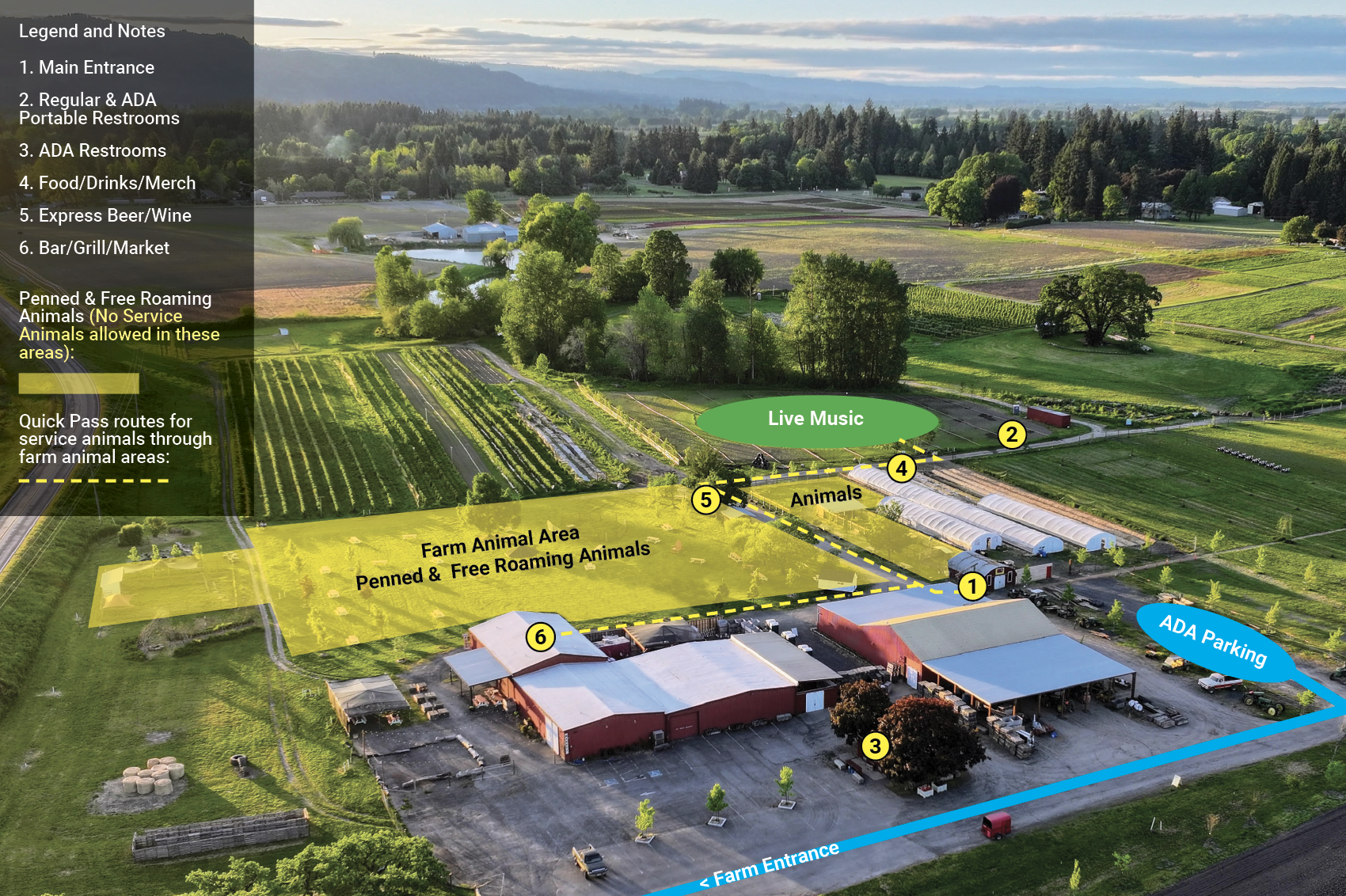ADA Service Animals
Service Animal Policy at Topaz Farm
Welcome! We’re glad you’re here. We know the farm can pose challenges with a service animal, and we’re here to help.
ADA Compliance
Topaz Farm complies with the Americans with Disabilities Act (ADA). Please note that pets and Emotional Support Animals (ESAs) are not allowed anywhere on the property, including the parking lot (and left inside parked vehicles).
Check-In & Admission
All guests with service animals must check in with staff on arrival. Staff may ask:
Is the animal required due to a disability?
What task is it trained to perform?
While on the Farm
Service animals must be leashed, harnessed, or under effective control.
They must stay at least 25 feet away from all farm animals due to potential stress to prey animals and/or disease transmission.
In U-pick areas, including edible u-pick pumpkins, animals must use paths and stay between rows.
Defecation must occur in grass parking areas only. Any incidents must be reported to staff.
Handlers are responsible for any damage and/or immediate cleanup.
Learn more about health risks at the CDC Zoonotic Diseases page.
If you have questions or need help, ask any staff member or email us in advance. We’re committed to a positive, safe experience for everyone—your feedback helps us improve.

